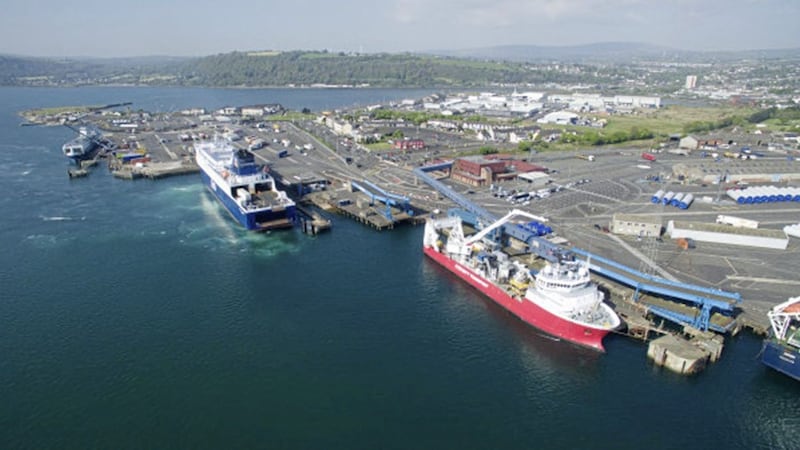EU officials will want to inspect your luggage when you arrive in Northern Ireland from Britain, according to reports this week.
“Utterly ridiculous and totally unnecessary,” was the reaction of DUP MP Jeffrey Donaldson.
The prospect was raised in an EU document during talks with the UK on December 2. Now that agreement in principle on the sea border’s operation has been reached, we await the details of how much baggage-rifling there will be. However, the document added that “most prohibitions and restrictions are only relevant for professional traders”, with only “some” relevant for individual travellers.
Looking through the current rules for bringing goods into the EU, it appears that for almost everybody, ‘some’ should mean none.
For example, the UK as an EU member permits travellers from third countries to bring in €10,000 worth of personal effects without any fees or processes. On arrival, you simply wheel it all through the green ‘nothing to declare’ channel that will apparently soon be available at Northern Ireland’s ports and airports.
The only exceptions are pets, certain plants and animal products and firearms - the latter perhaps relevant if returning from a meeting with the Archbishop of Canterbury.
Only the pet sea border is new here, replacing a pet land border that was never enforced.
Bringing in more than €10,000 is also permitted cost-free, as long as you go through the red channel. Your car is allowed in addition to this and is considered declared by just rolling off the boat.
Declaration or not, allowances for travellers assume you will be taking your stuff back out of the EU again, at most within two years. So these limits might only be applied to people with an address in Britain. There is no limit on taking your personal effects out of the EU and back in again, which would presumably apply to residents of Northern Ireland.
Personal effects must be used items. The duty and declaration-free limit on newly-purchased products brought into the EU is €430 per passenger journey. It seems unlikely this will become the sea border’s limit on shopping trips to Britain.
However, it is hard to see how there cannot be some form of limit, plus procedures to enforce it. Receipts will need to be kept. It seems certain cigarettes and alcohol will be subject to specific limits and duty, although the North Channel has never been a duty free route so this hardly scuppers a booze cruise tradition.
The EU sets upper and lower limits for alcohol and tobacco allowances and leaves member states to decide exact levels and charges. This highlights Northern Ireland’s unique position, where the state for sea border purposes is the specialised UK-EU committee. Brussels has always been adamant the committee is a forum for implementation, not negotiation, but with such a complex task that is inevitably a blurred line.
The December 2 document was a negotiating position and even that conceded a benign scenario. The agreed outcome for nearly all travellers should be walking or driving through a green channel without interruption, or without consequences if taken aside.
So the impact of the sea border will be on those stopped for inspection, plus the psychological effect on everyone wondering if they will be stopped.
UK Border Force, which supposedly operates a zero tolerance policy, checks around one person in 350 passing through the non-EU green lanes at Heathrow.
Selection of passengers is intelligence-led rather than random, with no targets for numbers searched or goods seized. The last independent report on this operation found its interaction with the public to be “professional and courteous”, with discretion shown to those exceeding duty limits. As the EU has considered that good enough to protect the single market at its largest UK passenger entry point, nothing more should be required for the post-Brexit sea border.
Will this be acceptable to the public in Northern Ireland? Much will depend on professionalism and courtesy, as there should be few circumstances where travellers will have extra cost or bureaucracy to complain about.
The sea border will probably be staffed on the front line by UK officials, with the EU seeking mainly an oversight presence. That should spare travellers, sensitive unionists in particular, the sight of EU flags on uniforms.
There is plainly great scope for all this to be de-dramatised. It is a pity we had to go through the negotiating drama first.









